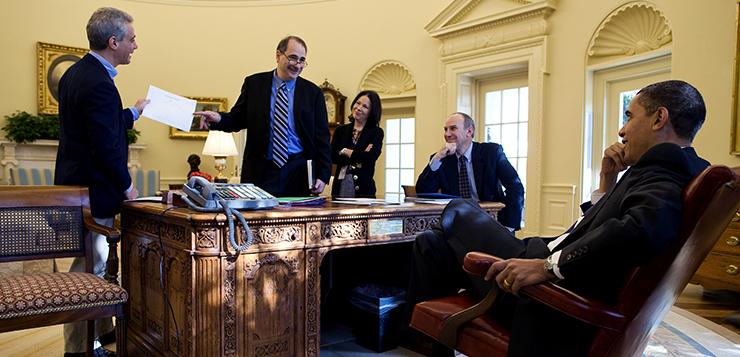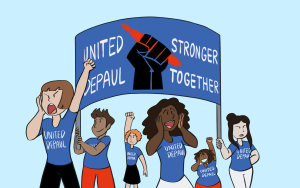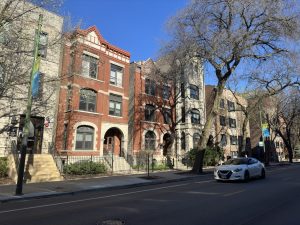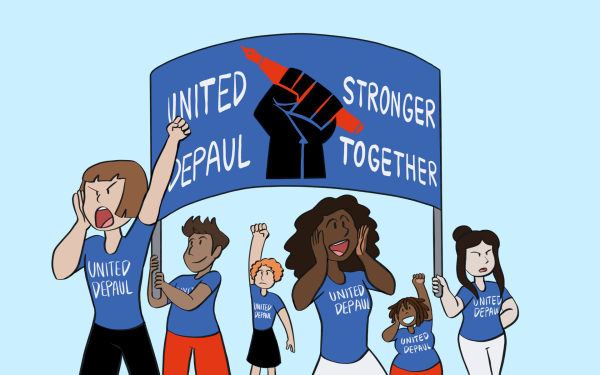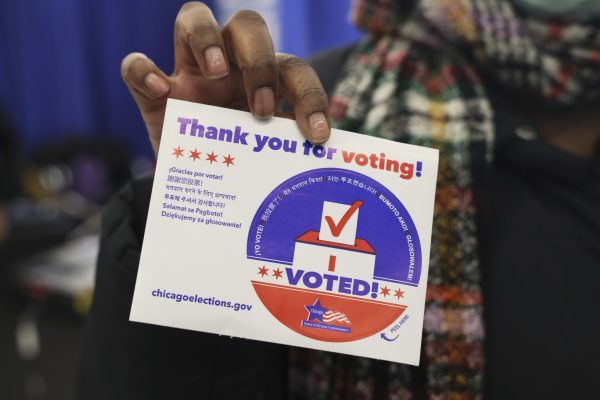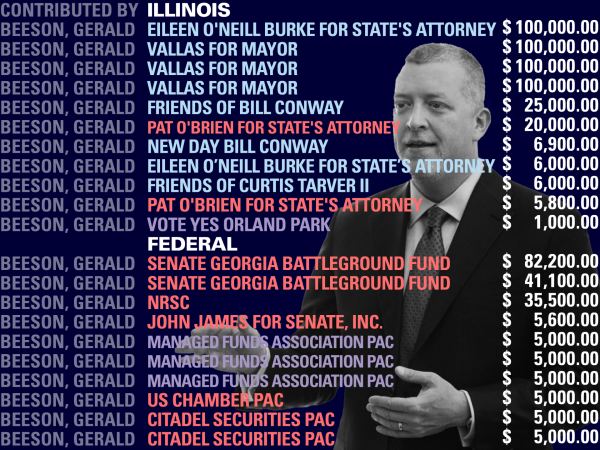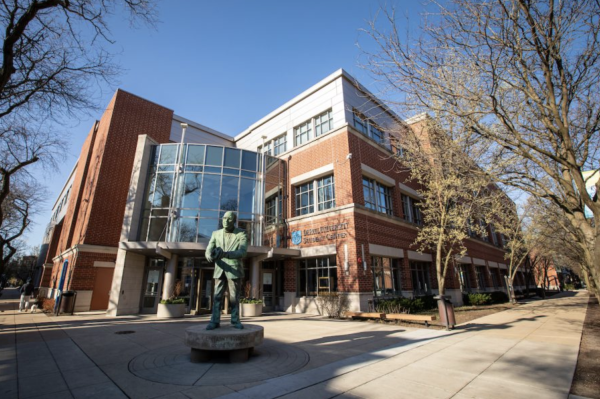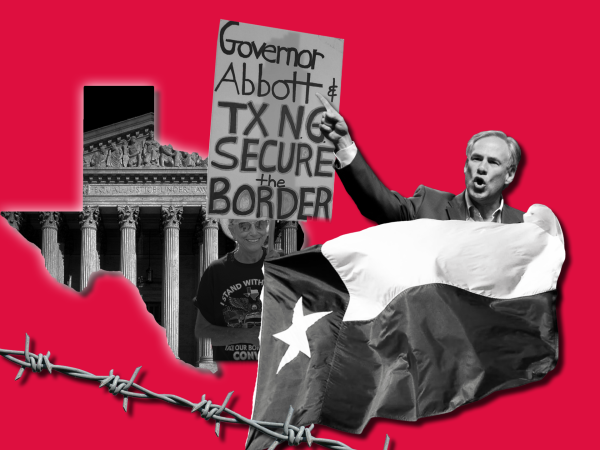Obama advisor David Axelrod on significance of political involvement
May 30, 2017
When David Axelrod’s father, an Eastern European refugee, came to the U.S., it’s likely he couldn’t have predicted his son would be senior advisor to the 44th President. As a kid, Axelrod lived in a housing project in New York City, where he said his aspirations of a political career first began. It was 12 days before former President John F. Kennedy was elected into office when he made a campaign stop in the Big Apple. Axelrod was just 5 years old.
Now, nearly six decades after Kennedy took his oath of office, Axelrod finds himself as one of the most successful American political operatives and analysts, having worked on former President Barack Obama’s 2008 and 2012 presidential campaigns as chief strategist. Bearing titles like senior political commentator for CNN and author of a New York Times bestseller, he’s also the director of the Institute of Politics at The University of Chicago — his alma mater.
The White House alum shared this story — the one that brought him from covering crime, politics and global affairs in Chicago to the White House — with a room full of students last Monday evening at the School of Public Service’s event: Authentic Conversation with David Axelrod. Having spent eight years as a reporter with the Chicago Tribune near the end of what he called “the Golden Age of Chicago journalism,” Axelrod soon became frustrated with the corporatization of journalism.
“Around the early ‘80s, management (…) changed because there was a concern that the margins of the newspaper needed to change,” Axelrod said. “Journalism became much more corporate. There was less passion about the story and more passion about the profits.”
Axelrod was a tough reporter. He regularly rocked the boat, especially after Jane Byrne — who he cited as a disappointment for Chicagoans — won the mayoral election in 1979.
“You think Trump has bad relations with his press corps? I was banned from City Hall at one point.”
Eventually, Axelrod moved on to a career in politics.
In 1984, he helped Paul Simon win a seat in Congress. Just three months out of print journalism, a 28-year-old Axelrod worked closely with Simon’s media team to produce advertisements for a campaign Axelrod said was centered around fighting for civil rights and political reform in Springfield. Later, he opened up a firm and started working in political consulting. Finally, in 2004, he began working for the then Senator Barack Obama — the Harvard Law graduate from Chicago’s South Side who he’d met just 12 years prior.
In 2008, when Obama ran for president “much to both of (their) surprise,” Axelrod served as chief political strategist.
“The last thing I’m most proud of is we went for eight years. We brought a standard of integrity to the (White House), and I think that’s important.”
Now the Trump administration is on record for erasing Obama-era policies by reversing offshore drilling restrictions and directing a top-to-bottom audit of the executive branch, via executive order. The Trump administration has a new goal: repeal and replace the Affordable Care Act (ACA) with what they call the American Health Care Act (AHCA).
On May 22, the Trump administration and House of Representatives asked a federal court for another 90-day delay in a lawsuit over ACA insurance subsidies as they “continue to discuss measures” — like the AHCA — “that would obviate the need for judicial determination of this appeal, including potential legislative action.”
“In a way, they’re strangling the health care exchanges by creating this uncertainty for insurance companies. They’re making it impossible for insurance companies to plan, and therefore they’re causing insurance companies to consider withdrawing from these exchanges,” Axelrod said in response to the delay being granted. “I’m very concerned about it and I think it is a backdoor way of damaging the Affordable Care Act.”
Perhaps Axelrod is so adamantly against the AHCA because he has a personal connection to its polar opposite — his daughter had a pre-existing condition at a time when his family couldn’t afford to switch insurance companies. In fact, Axelrod remembers the night the ACA passed in Washington.
“On the night that it passed, we were all in the Roosevelt Room (…) and we were watching the final votes come in from the House. I got up and I went in my office and I sobbed,” Axelrod said. “I wondered why I was so emotional and I realized it was because of what my family had gone through — I knew that there were families who weren’t going to have to go through what we went through.”
When Axelrod returned to the Roosevelt Room, Obama put his hand over his shoulder and said, ‘That’s why we do the work.’”
Nick Kachiroubas is the DePaul professor who moderated the evening’s discussion. The Authentic Conversation Series happens biannually—once in the fall and again in the spring. Some past speakers include William “Bill” Daley, former White House chief of staff and Ray LaHood, former Secretary of Transportation.
“I’m looking into going into a career in politics, so I love to attend events like these,” graduate student Kristin Coleman said.
The School of Public Service hosts the speaker series as an opportunity for students enrolled in their program to engage professionals in public service.
“I like these events because they’re engaging, they’re informative and they give us insight to public service that you probably wouldn’t or couldn’t gain,” graduate student Antoinette Thomas said.
Axelrod certainly kept it real for students looking for careers in public service when he explained his days working in the White House.
“I’d get there every day and have meetings at 7 a.m.,” Axelrod said. “Every single minute of every day was filled with something consequential.”
“On one day that sort of reflects, we met in the morning because the auto industry was collapsing. The president already had a press briefing about Korea, then had meetings about Afghanistan. Then, we met for two hours and decided to intervene to save the auto industry,” Axelrod said.
“I got back to my office and collapsed in my chair and Rahm Emanuel calls me and says, ‘Get in here. Fargo is flooding.’ And that’s a typical kind of day.”


